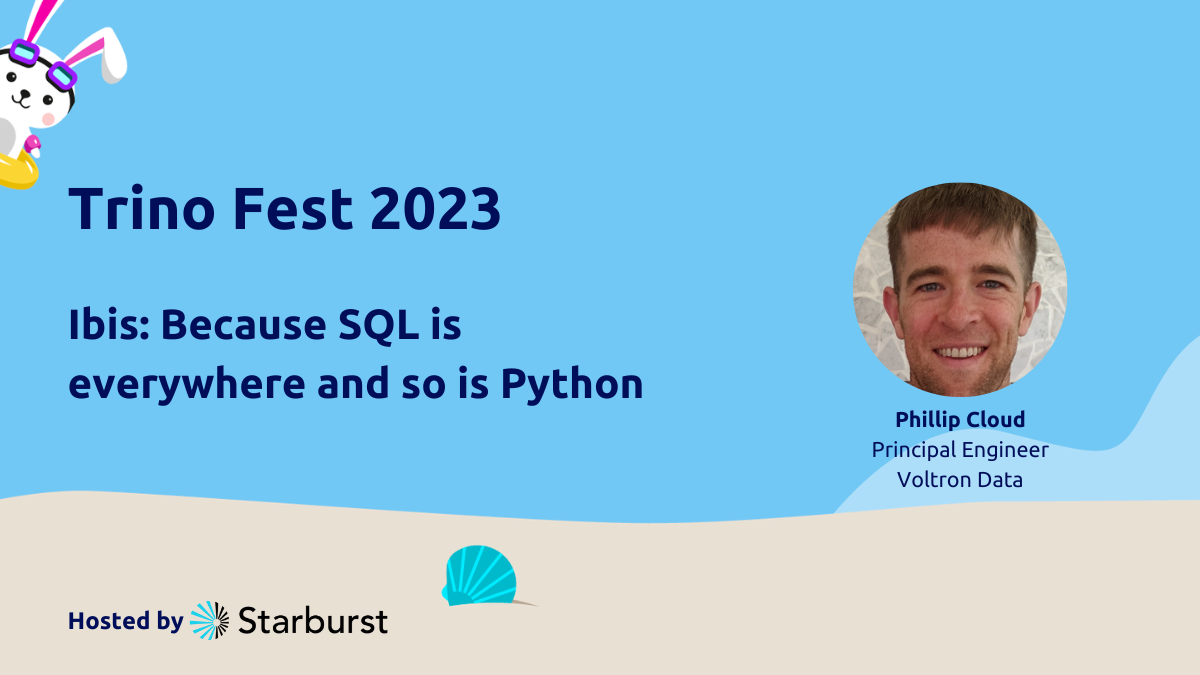
The PyData stack has been described as “unreasonably effective,” empowering its users to glean insights and analyze moderate amounts of data with a high level of flexibility and excellent visualization. The large-scale, production data stack using a query engine like Trino sits on the other side of the world, capable of handling petabytes and exabytes, but perhaps not integrating as seamlessly with the Python ecosystem as one would hope. SQL has been a means of bridging this gap, but we’ve now got an exciting solution to bridge it even better: Ibis.
A major problem with bridging the gap between Python and SQL engines has been the lack of standardization in SQL. Though Trino prides itself on being ANSI-compliant and many other SQL dialects strive to be similar, the reality is that every SQL engine is different, and a complicated SQL query will error out or return different results based on what engine you’re using. So if you want to convert some Python code to SQL, the question is… which SQL? If you’re doing your data analysis in Python because you prefer to use it, spending time scratching your head and trying to work out a SQL conversion can be frustrating, time-consuming, and painful. But SQL is everywhere, and for large, performant, efficient queries, you may need a SQL engine like Trino.
Enter Ibis, a lightweight Python library for “data wrangling.” It can easily convert your Python code into SQL queries for 16 different engines, including Trino. With Ibis, you can leverage the ease of writing Python code with the power and performance of running queries in Trino, getting the best of both worlds in both the Python and SQL ecosystems. Want to learn more? Check out the Ibis project website, give the talk a listen, and tune into the Trino Community Broadcast on July 6th, where we’ll be going into even more detail about Ibis.
Share this session
If you thought this talk was interesting, consider sharing this on Twitter, Reddit, LinkedIn, HackerNews or anywhere on the web. If you think Trino is awesome, give us a 🌟 on GitHub !